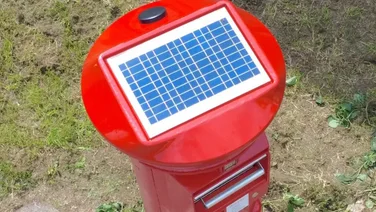- The price cap rose from £1,568 to £1,717 on 1 October 2024, a 10% increase
- It is predicted to decrease for Q1, Q2 and Q3 of 2025 but still not to historic averages
- A quarterly review on the price cap is being conducted by Ofgem

In the UK, typical domestic consumption is 2,700kWh annually for electricity and 11,500kWh for gas
Energy market intelligence agency Cornwall Insight has predicted a 1% decrease in the January 2025 Default Tariff Cap.
The Energy Price Cap rose by 10% on 1 October, from £1,568 to £1,717, and it is unlikely to come down until the end of 2024 at the earliest.
Cornwall Insight predicts that the price cap will fall to £1,697 per year for a typical dual fuel consumer in January 2025. Ofgem’s Typical Domestic Consumption Values (TDCVs) are 2,700kWh annually for electricity and 11,500kWh for gas.
Dr Craig Lowrey, principal consultant, Cornwall Insight, described the rise set to take effect in October this year as a “temporary blip”.
“January to March, typically some of the coldest months of the year, often bring with them the biggest energy bills, and – while our latest forecast is welcome news – it remains subject to the volatile wholesale gas and electricity markets,” Lowrey explained.
A previous forecast from August 2024 suggested there would be a slight quarter-on-quarter rise in January 2025, but with the EU meeting its gas storage targets ahead of winter, and improved confidence in gas and electricity imports, has caused a downward trend in wholesale market prices.
As well as a 1% decrease for the first three months of 2025, Cornwall Insight has predicted a slight decline in the cap in Q2 and Q3 of 2025. However, bills remain hundreds of pounds above historic averages with the cap not forecast to return to those levels.
Lowrey continued: “There remain a further six weeks or so for the wholesale market to influence our forecasts, and while the negligible quarter-on-quarter drop is welcome, it must be remembered that bills will still remain hundreds of pounds above historic levels.
He urged the government and other stakeholders to “look at actions they can take to shield vulnerable consumers”.
“Not everybody can wait for renewable energy savings to kick in,” Lowrey said.
“While there is hope that a renewed focus on building a sustainable domestic energy supply that could eventually lower bills as we reduce reliance on volatile imports, these benefits will take time to materialise. Meanwhile, many people are facing financial difficulties right now.”
Ofgem taking action
Ofgem is undertaking a comprehensive review of the price cap in order to assess its general consumer protection measures.
This includes seeking feedback from energy suppliers, consumer groups, charities, and energy industry bodies about operating cost allowances and how a simpler Smart Metering Net Cost Change (SMNCC) allowance could work.
Jonathan Brearley, CEO of Ofgem, urged anyone who is struggling to pay their energy bills to make sure they can access the benefits and schemes they’re entitled to and to contact their energy company for support.
He also said that Ofgem is working with the government, suppliers, charities and consumer groups to “support customers, including longer term standing charge reform, and steps to tackle debt and affordability.”
However, if any changes are made, they will not be implemented until at least the April 2025 price cap period.







